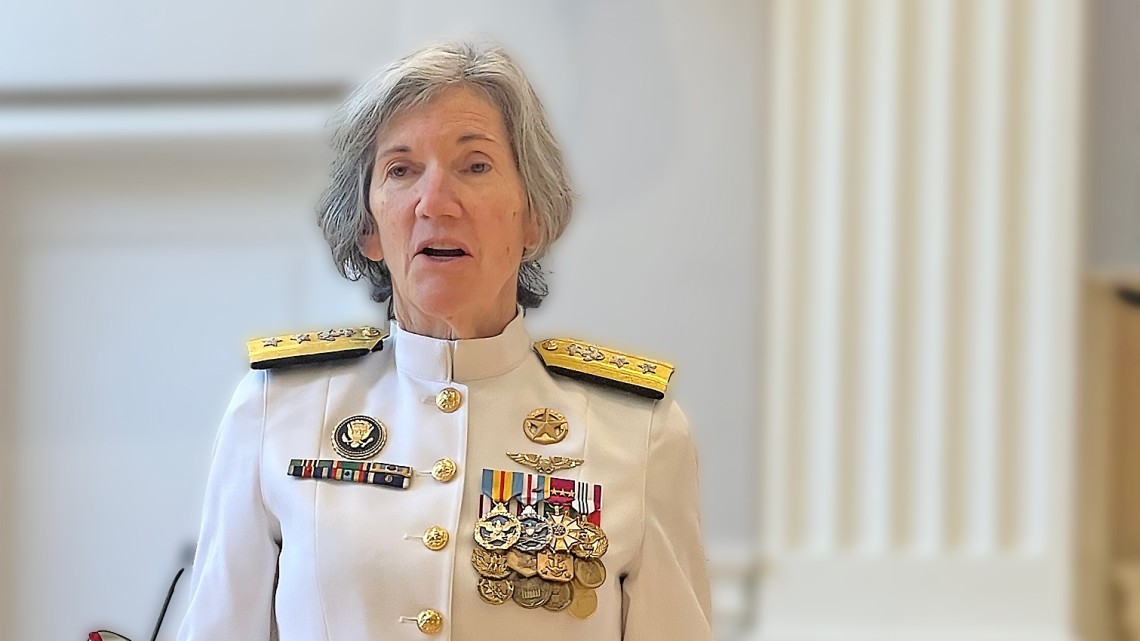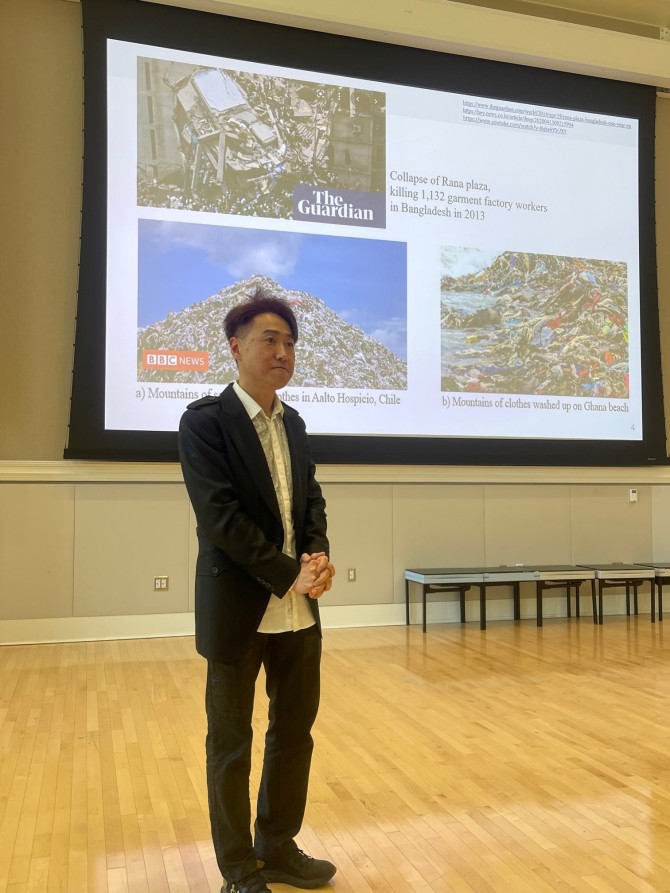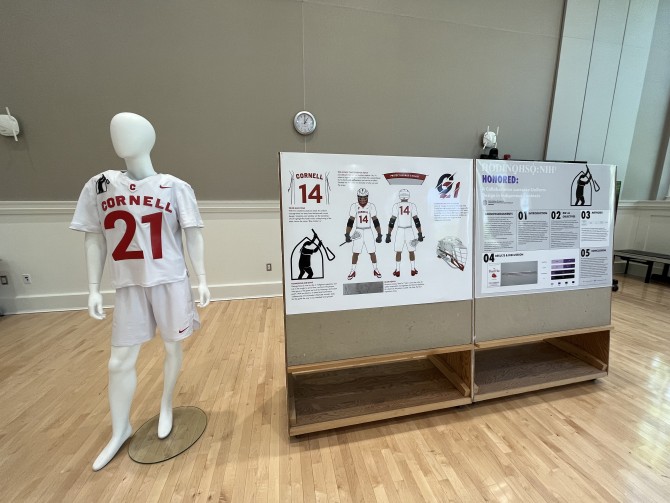
Rear Admiral (ret) Margaret "peg" Klein, photo courtesy Debra Howell
News directly from Cornell's colleges and centers
The ethics of leadership and design
By Grace DePaull
The Cornell Veterans Colleague Network Group (VCNG) and the College of Human Ecology co-sponsored a “lunch and learn” discussion on May 26 that focused on the ethics of leadership and design. Rear Admiral (ret) Margaret “Peg” Klein was invited to Cornell to lead a discussion about the critical role that ethical leaders play in and out of the workplace.
Klein is a professor of ethics and leadership at the U.S. Naval War College and completed her Navy career in 2017. As Rear Adm. Klein, she served as the Secretary of Defense’s Advisor for Military Professionalism, the Chief of Staff for the U.S. Cyber Command, director of operations for the Navy’s Network Warfare Command and as the 82nd Commandant of Midshipmen at the U.S. Naval Academy, where she was the first woman to hold this position.
Klein’s discussion explored the influential role that ethical leaders play – not just in the military – but in all aspects of life.
“Leaders have the opportunity to model the behavior they wish to see,” Klein said. “The biggest impact leaders have is their ability to influence those around them. An ethical person lives by virtues and is admirable while still being human. Ethical leaders not only hold themselves to these high standards, but they hold others around them to the same.”
Klein shared the four principles of ethical leadership – integrity, transparency, fairness and accountability – and urged those in attendance to think about the ways in which they lead and how focusing on these principles can strengthen their impact at the university.
Debra Howell and Randi Rainbow, members of Cornell’s VCNG executive board, were instrumental in coordinating Klein’s discussion.
“Leaders have a profound influence on shaping the culture within their organizations and communities,” Howell said. “Ethical leadership creates an environment that fosters trust, respect and inclusivity. By examining this, Cornell can develop leaders who create positive work environments, contributing to the overall well-being and success of the organization.”
Whether in the military or at Cornell, ethical leadership relies on a commitment to set an excellent example for others to follow. This often begins with education and can start in the classroom.
Dr. Heeju Park, associate professor in the Department of Human Centered Design, spoke to this notion with a presentation on creating ethical designs for an inclusive society. He shared the importance of exploring issues such as labor exploitation, lack of diversity, overconsumption and pollution and offered ways to think critically about how to solve them.
“I strongly believe that design education is the future of the clothing industry,” Dr. Park said. “It is important to be aware of what is going on. There are many things that need to be changed in the clothing industry, but it should start with education, especially college education.”
Student work from Dr. Park’s course Ethical Design: Engine of Positive Change was also on display. His students were tasked with researching and identifying an ethical issue and then redesigning it to reflect a more inclusive approach. Cornell’s dining, lacrosse and women’s ice hockey uniforms, which were created in Dr. Park's Performance Apparel Design lab, were amongst the handful of projects on display.
“The most important tool in a designer's toolbox is not the pen or the brush. Instead, it's the designer’s ability to have conversations,” Andrew Melissas said.
Melissas is a graduate student who redesigned a lacrosse uniform in collaboration with the Haudenosaunee Confederacy to honor the sport’s origins. When creating his design, Melissas reached out to the indigenous population to understand the divide between respectful reciprocity and cultural appropriation.
Similarly, graduate student Tulasi Elangovan chose to undertake redesigning women’s ice hockey gear for improved comfort, fit and protection. While unfamiliar with the sport, Elangovan recognized the importance of speaking with those directly involved to understand critical problems that may otherwise become overlooked.
“When looking at a problem as a designer, it’s necessary to talk to the people who can identify what that problem is instead of assuming. Talking to the women’s ice hockey players is what put everything into perspective, and that's what made all of it possible,” Elangovan said.
Klein wrapped up the afternoon with a Q&A session, leaving participants to understand that the future of institutions, organizations and communities relies on ethics that are honored when leading and learning.
Media Contact
Get Cornell news delivered right to your inbox.
Subscribe


